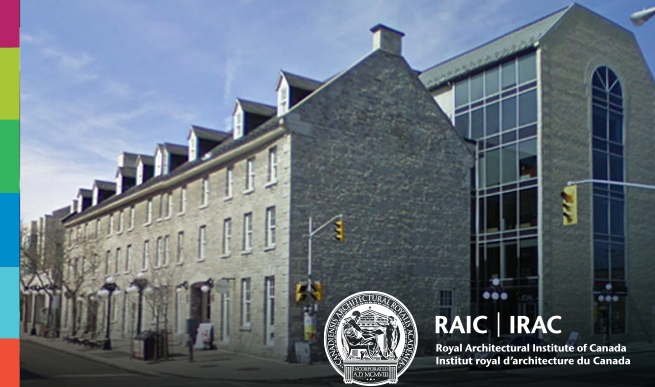
PhD Research Fellow in Bioanalytical Chemistry available at the Department of Chemistry/ UiO:Life Science interdisciplinary project
Position as PhD Research Fellow in Bioanalytical Chemistry available at the Department of Chemistry/ UiO:Life Science interdisciplinary project Integrated technologies for tracking organoid/gastruloid morphogenesis ITOM.
No one can be appointed for more than one PhD Research Fellowship period at the University of Oslo.
The fellowship period is 4 years, with 3 years devoted to research. The position entails a compulsory workload of 25% that may consist of teaching, supervision duties, and research assistance.
Starting date as early as possible.
About the project:
“ITOM – Integrated technologies for tracking organoid/gastruloid morphogenesis”. Embryonic stem (ES) cell technology has allowed to develop organoid/gastruloids that show features of organ induction, but lack further maturation and show large variations. The field therefore requires high-content tracking tools and algorithms to guide organoid/gastruloid development. The project will use advanced correlative imaging technologies and data analysis to guide the differentiation of ES cell derived organoids/gastruloids. The ITOM project unites three different Centres of Excellence in the Oslo area: HTH-CoE, Njord-CoE and RITMO-CoE. As such, the candidate will be part of a large and closely interacting interdisciplinary team of basic scientists, developmental biologists, chemists, physicists and computational scientists.
Job description:
In this interdisciplinary project, a nano desorption electrospray ionization (nanoDESI) source for mass spectrometry is to be developed for the study of organoids/gastruloids. The work will include assembling of the nanoDESI platform and apply it for small molecule imaging of e.g. endogenous biomolecules on organoids/gastruloids. Results obtained will be correlated with imaging technologies, including Raman spectroscopy imaging within ITOM.
For more information about the ITOM project, see https://www.uio.no/english/research/strategic-research-areas/life-science/research/convergence-environments/itom/
The candidate will be supervised by Ass. Prof Hanne Røberg-Larsen, Prof. Steven R Wilson from the Department of Chemistry and Prof. Stefan Krauss from the HTH-CoE. The project will be hosted by the Department of Chemistry.Foto: Colourbox
Qualification requirements
The Faculty of Mathematics and Natural Sciences has a strategic ambition to be among Europe’s leading communities for research, education and innovation. Candidates for these fellowships will be selected in accordance with this, and expected to be in the upper segment of their class with respect to academic credentials.
Required qalifications:
- Master’s degree or equivalent in Analytical chemistry
- Foreign completed degree (M.Sc.-level) corresponding to a minimum of four years in the Norwegian educational system
- Practical experience in bioanalysis, mass spectrometry and/or miniaturized analytical techniques (e.g. nano Liquid Chromatography, nano DESI)
- Fluent oral and written communication skills in English
Desired qualifications:
- Strong capability in troubleshooting and development of advanced analytical instrumentation
Candidates without a Master’s degree have until 30 June, 2022 to complete the final exam.
Grade requirements:
The norm is as follows:
- The average grade point for courses included in the Bachelor’s degree must be C or better in the Norwegian educational system
- The average grade point for courses included in the Master’s degree must be B or better in the Norwegian educational system
- The Master’s thesis must have the grade B or better in the Norwegian educational system
- Fluent oral and written communication skills in English and preferably also a Scandinavian language.
English requirements for applicants from outside of EU/ EEA countries and exemptions from the requirements:
https://www.mn.uio.no/english/research/phd/regulations/regulations.html#toc8
The purpose of the fellowship is research training leading to the successful completion of a PhD degree.
The fellowship requires admission to the PhD programme at the Faculty of Mathematics and Natural Sciences. The application to the PhD programme must be submitted to the department no later than two months after taking up the position. For more information see:
http://www.uio.no/english/research/phd/
http://www.mn.uio.no/english/research/phd/
We offer
- Salary NOK 491 200 – 534 400 per annum depending on qualifications and seniority as PhD Research Fellow (position code 1017)
- Attractive welfare benefits and a generous pension agreement
- Vibrant international academic environment
- Career development programmes
- Oslo’s family-friendly surroundings with their rich opportunities for culture and outdoor activities
How to apply
The application must include:
- Cover letter – statement of motivation and research interests
- CV (summarizing education, positions and academic work – scientific publications). The first paragraph on the CV must include a description of practical experience and skills related to mass spectrometry, bioanalysis and/or miniaturized analytical techniques (e.g. nanoLC, nanoDESI). Applications missing this description may not be further considered.
- Copies of the original Bachelor and Master’s degree diploma, transcripts of records and
- Letters of recommendation
- Documentation of English proficiency
- List of publications and academic work that the applicant wishes to be considered by the evaluation committee
- Names and contact details of 2-3 references (name, relation to candidate, e-mail and telephone number)
The application with attachments must be delivered in our electronic recruiting system (please follow the link “Apply for this job”). Foreign applicants are advised to attach an explanation of their University’s grading system.
Please note that all documents should be in English or a Scandinavian language.
Applicants may be called in for an interview.
Formal regulations
Please see the guidelines and regulations for appointments to Research Fellowships at the University of Oslo.
No one can be appointed for more than one PhD Research Fellowship period at the University of Oslo.
According to the Norwegian Freedom of Information Act (Offentleglova) information about the applicant may be included in the public applicant list, also in cases where the applicant has requested non-disclosure.
The appointment may be shortened/given a more limited scope within the framework of the applicable guidelines on account of any previous employment in academic positions.
The University of Oslo has an agreement for all employees, aiming to secure rights to research results etc.
Inclusion and diversity are a strength. The University of Oslo has a personnel policy objective of achieving a balanced gender composition. Furthermore, we want employees with diverse professional expertise, life experience and perspectives.
If there are qualified applicants with disabilities, employment gaps or immigrant background, we will invite at least one applicant from each of these categories to an interview.
Contact information
For further information please contact:
Group leader Ass. Prof Hanne Røberg-Larsen, phone: +47 228 55587, e-mail: hannero@kjemi.uio.no
Prof. Steven R Wilson, phone: +47 97010953, e-mail: s.r.h.wilson@kjemi.uio.no
For technical questions regarding recruitment system, please contact:
HR Advisor Olga Holmlund, e-mail: olga.holmlund@mn.uio.no

About the University of Oslo
The University of Oslo is Norway’s oldest and highest rated institution of research and education with 28 000 students and 7000 employees. Its broad range of academic disciplines and internationally esteemed research communities make UiO an important contributor to society.
The Department of Chemistry is Norway’s largest institution within research and education in chemistry. Our research excels internationally and we educate students to a wide variety of jobs in industry, academia, research institutions, schools and public administration.
Our research ranges from the core topics of chemistry to applied science within in environmental, health, energy and materials. The Department has extensive contacts with industry, research and educational institutions at home and abroad. As partner in the Centre for Materials Science and Nanotechnology our researchers contributes to a significant interdisciplinary efforts in cooperation with the Department of Physics. The Department of Chemistry has its own school laboratory as a great resource for teachers, public outreach and the didactics of chemistry.
![Postdoctoral and Research Opportunities at McGill University [CA]](https://scholaridea.com/wp-content/uploads/2020/06/mcgill-university-30-may-2019-768x402.jpg)

